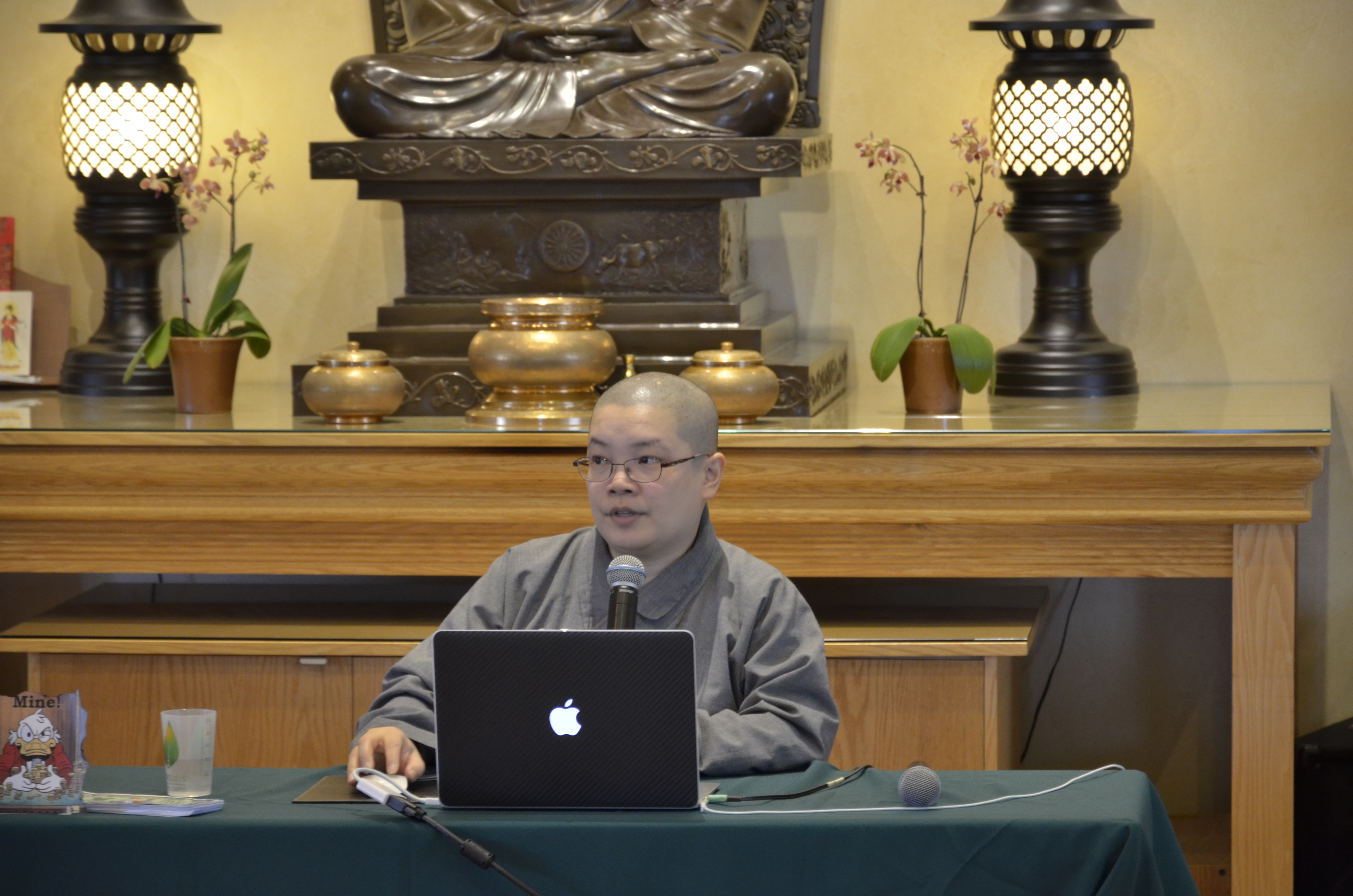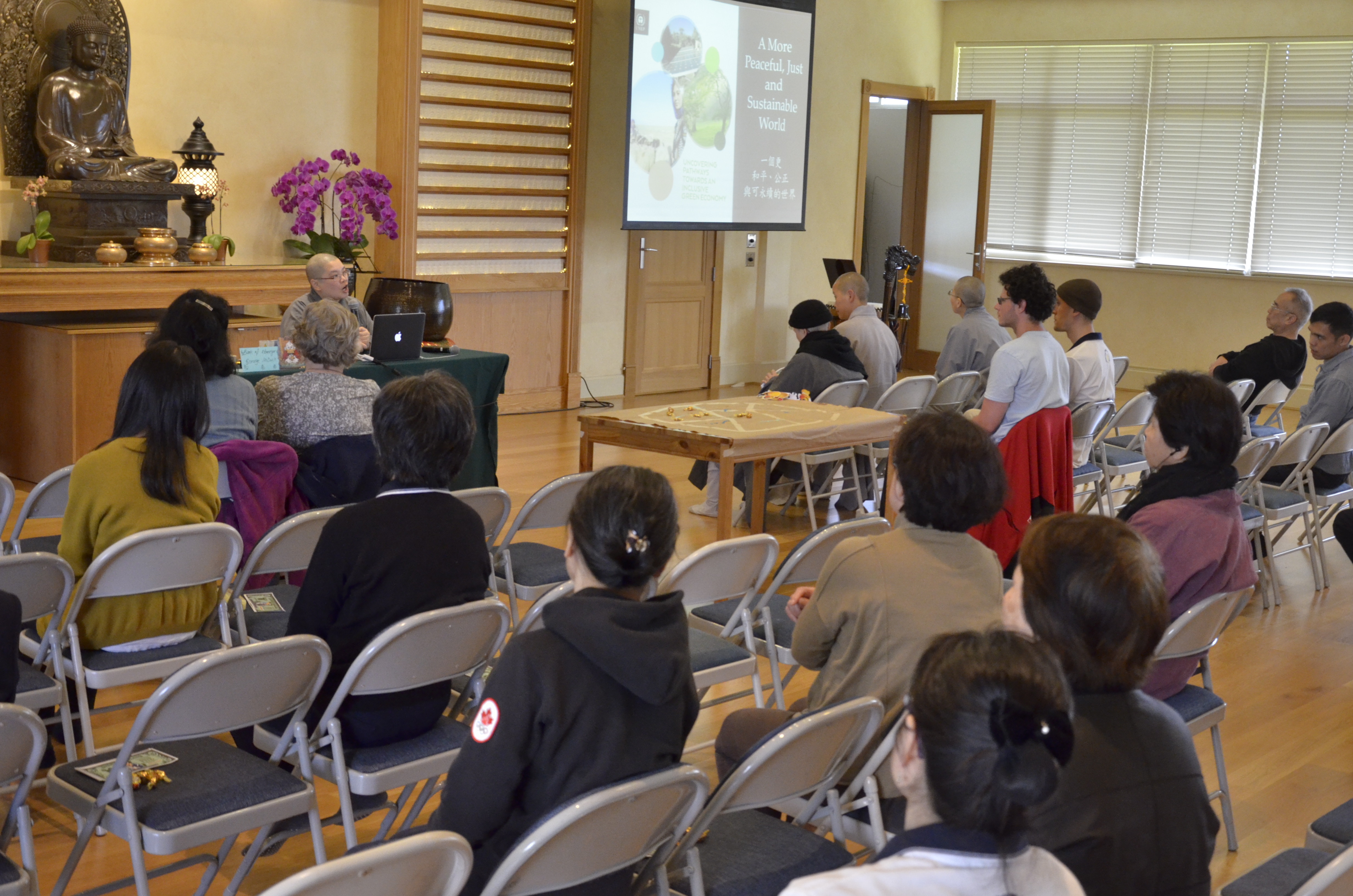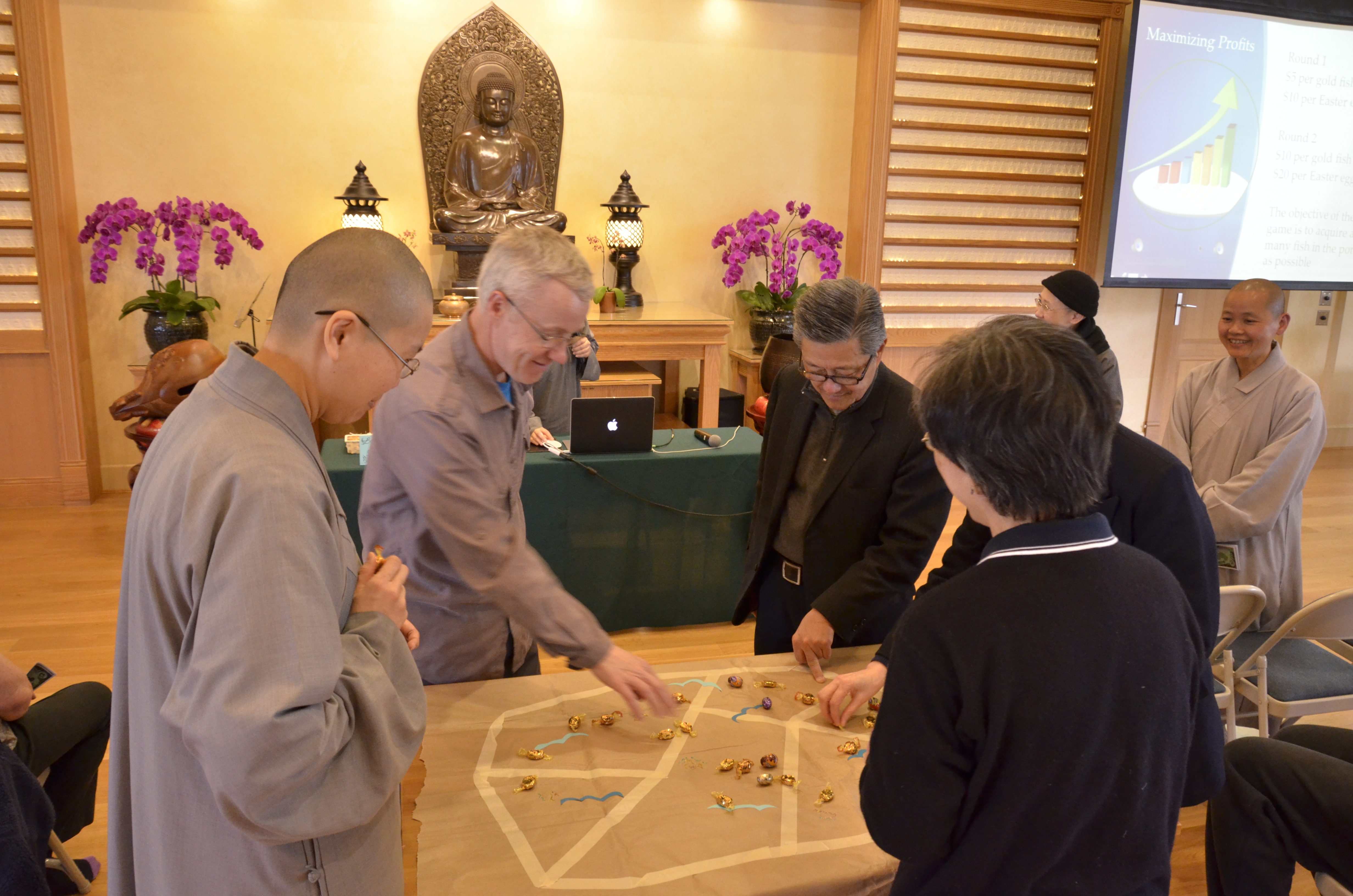Civilization's Future – Venerable Chang Ji's Talk on Global Warming
As of last year, average temperatures on Earth rose to 1.3˚C warmer than pre-industrial levels, just 0.7˚C away from the United Nations' target maximum of no more than 2˚C change, a limit intended to prevent crossing thresholds beyond which scientists say it may be impossible to reverse the severe consequences of global warming. This was one of the main themes of Venerable Chang Ji's talk, titled "Is Civilization Dying or Being Born?" at Dharma Drum Vancouver Center on April 30, 2017. She spoke about the issues of climate change and the urgent need to fix it while we still have the chance to do so.

Although not a climate scientist, Ven. Chang Ji is very knowledgeable about the subject of environmentalism. As the International Affairs Special Assistant to the late Venerable Master Sheng Yen, founder of Dharma Drum Mountain Buddhist Association, she has participated in conferences at the United Nations, World Economic Forum, and World Bank, and is committed to teaching young people about spiritual environmentalism, which encompasses aspects of both protecting Earth's natural resources for future generations and protecting the environment within our own minds and social interactions. The information for this talk was gathered from other UN experts.
Ven. Chang Ji explained how geologists are proposing that Earth's natural systems have changed so significantly within the last century that it has now moved past the Holocene, the interglacial epoch dating from the end of the last ice age 12,000 years ago, into the Anthropocene, a new era marking the significant human impact on Earth's geology and ecosystems. This change has primarily been caused by unsustainable greenhouse gas emissions, deforestation, and decreased biodiversity.
Vancouver and many other coastal cities worldwide are threatened by the risk of rising sea levels caused by melting polar ice. Ice caps keep the Earth cool because of their bright whiteness, reflecting radiation from the Sun back into outer space. As the ice melts, though, ocean and land is exposed, the dark colour of which absorbs more radiation, causing warmer temperatures and accelerating the melting of further ice. The submerging of coastal cities in water will cause mass migrations of environmental refugees.

An enormous island of plastic trash exists in the Pacific Ocean, called the Great Pacific Garbage Patch; it has accumulated there due to circular currents and causes significant environmental harm. Birds and fish ingest the plastic, which both kills them and harms us humans when we eat the fish. Ven. Chang Ji said that the garbage patch is so large, it would take at least 60 boats over a year to clean just one percent of it and the cost would bankrupt a small country; only by international co-operation can all the trash be cleaned up.
To illustrate the need for co-operation in combating climate change, Ven. Chang Ji played a game with us involving candy goldfish. The candies, representing goldfish, were laid out on a table surface, representing a pond, and players were instructed to score as many points as possible by "catching" them. A second round would raise the rewards by doubling the points for each fish. When the game began for the first round, all the goldfish were gone within seconds because players impulsively fought to grab them; there were none left for a second round. A new set of players took the stage and more candies were laid out; having seen and learned from the first group's mistake, this group not only discussed a plan together, but they waited until round two to take the goldfish, scored far more points than the first group, and even left some fish remaining in the pond.
The game showed how an impulsive, distrusting, greedy state of mind can result in failure: the first group didn't trust each other, causing some players to have many candies and others to have none, whereas the second group formed a collaborative agreement based on trust and each player in their group had enough candy. Ven. Chang Ji likened the experience of the game to how nations need to be less competitive with each other when harvesting Earth's natural resources and need to do so in more sustainable ways.
To conclude her talk, Ven. Chang Ji urged us to see that there is still hope for the reversal of global warming. She encouraged us to think creatively to build a "new system" for the future because the "old system," which values profits over the planet, is broken. Her response to an audience member's question about U.S. President Donald Trump's outspoken denial of climate change was that Trump is an opportunity: he so thoroughly and plainly exposes all the problems with the "old system," that he'll make an excellent motivator for the world to change.

I'd like to thank Ven. Chang Ji for sharing her knowledge with us about the potential risks and opportunities in our planet's near future. It's both saddening and empowering to know that we are the last generation capable of reversing global warming. It doesn't matter whether we are Canadian, American, Chinese, or any other nationality; ultimately, we are a single, collective whole – humanity – and we and our children share the common bond of needing a healthy Earth upon which to live.
By Lucas